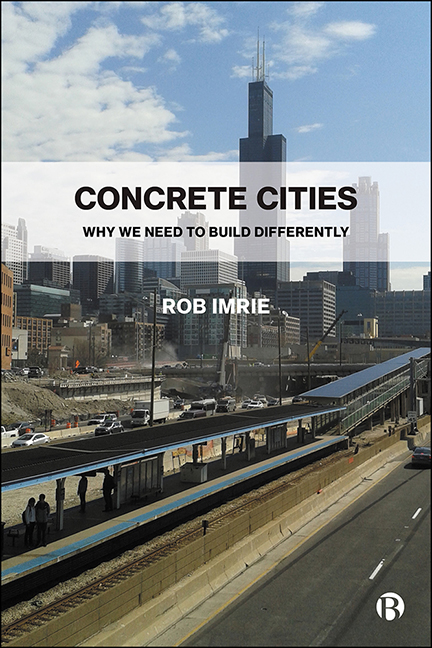Book contents
- Frontmatter
- Contents
- List of Figures
- About the Author
- Preface
- 1 Introduction: The Omnipresent Nature of Building
- 2 The Significance of Building and Construction
- 3 Building and the Construction State
- 4 Speculation and Building Booms
- 5 Disruption, Displacement and Dispossession
- 6 Demolition: Wasting the City and Teardown Building
- 7 Why Building More Housing Will Not Work
- 8 Building That Matters to People
- 9 Constructing for Species Survival
- 10 Building and Construction That Cares
- Notes
- References
- Index
3 - Building and the Construction State
Published online by Cambridge University Press: 30 April 2022
- Frontmatter
- Contents
- List of Figures
- About the Author
- Preface
- 1 Introduction: The Omnipresent Nature of Building
- 2 The Significance of Building and Construction
- 3 Building and the Construction State
- 4 Speculation and Building Booms
- 5 Disruption, Displacement and Dispossession
- 6 Demolition: Wasting the City and Teardown Building
- 7 Why Building More Housing Will Not Work
- 8 Building That Matters to People
- 9 Constructing for Species Survival
- 10 Building and Construction That Cares
- Notes
- References
- Index
Summary
Introduction
Building is indivisible from the actions of governments, and there is no construction that is not simultaneously shaped by state policy programmes, particularly relating to the promotion of economic development. Gordillo (2014) recounts the emergence of state-sponsored investments in the Chaco region in Northern Argentina, in which building and construction are characterised by waves of ‘disruption by bulldozers’ as countless villages are destroyed to make way for new buildings, roads, bridges and towns as part of opening up the region to cattle ranching and agribusiness. For Gordillo (2014), the emergent built environment in Chaco is part of the destruction and spatial obliteration of indigenous communities, a process similar in many other areas. Thus, in Chinese cities like Shanghai, government policy encourages the demolition of traditional lilong housing and alleyways as part of the city's modernisation, a process that involves the displacement of people and their removal to often peripheral, semi-suburban estates.
Both examples illustrate the power of construction to transform space and the social fabric of places, while drawing attention to the role of the state in shaping the (re)production of the built environment. Construction is a highly organised, and institutionalised, process involving many actors, and foremost is the state, which has a major stake in ensuring the supply of buildings and infrastructure. In this chapter, I develop the understanding that the political stratagems of states are linked to the proliferation of building and construction. States, and supranational bodies like the World Bank, support a growthist agenda that, while claiming to benefit all, is part of a politicised strategy that encourages ‘building without limits’. From the opening up of frontier areas by constructing road and rail networks, to the displacement of local communities in places such as the Three Gorges Dam in China, the policies and programmes of states are a major part of why we are building too much and too badly.
In exploring this theme, I divide the chapter into three sections. First, I consider the interrelationships between building and territoriality, or the propensity for states to deploy construction in the process of securing access to, and control over, territory. From the earliest foundations of empires, construction has been pivotal in providing physical infrastructure to facilitate state governance, and integral to developing territorial presence and ambition.
- Type
- Chapter
- Information
- Concrete CitiesWhy We Need to Build Differently, pp. 36 - 61Publisher: Bristol University PressPrint publication year: 2021



